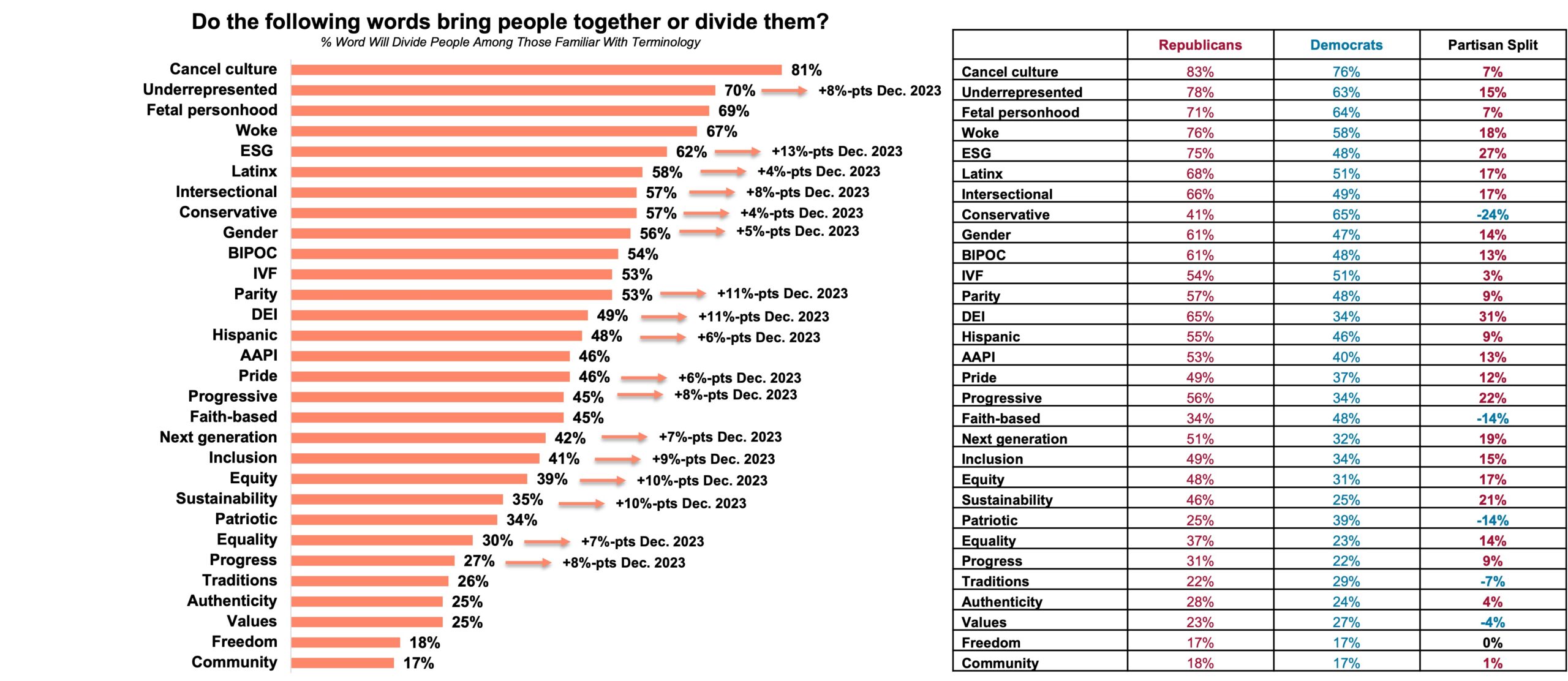By: Ray Day
CONTACT:
We wanted to share our latest consumer and business insights, based on research from Stagwell. Among the highlights of our weekly consumer sentiment tracking:
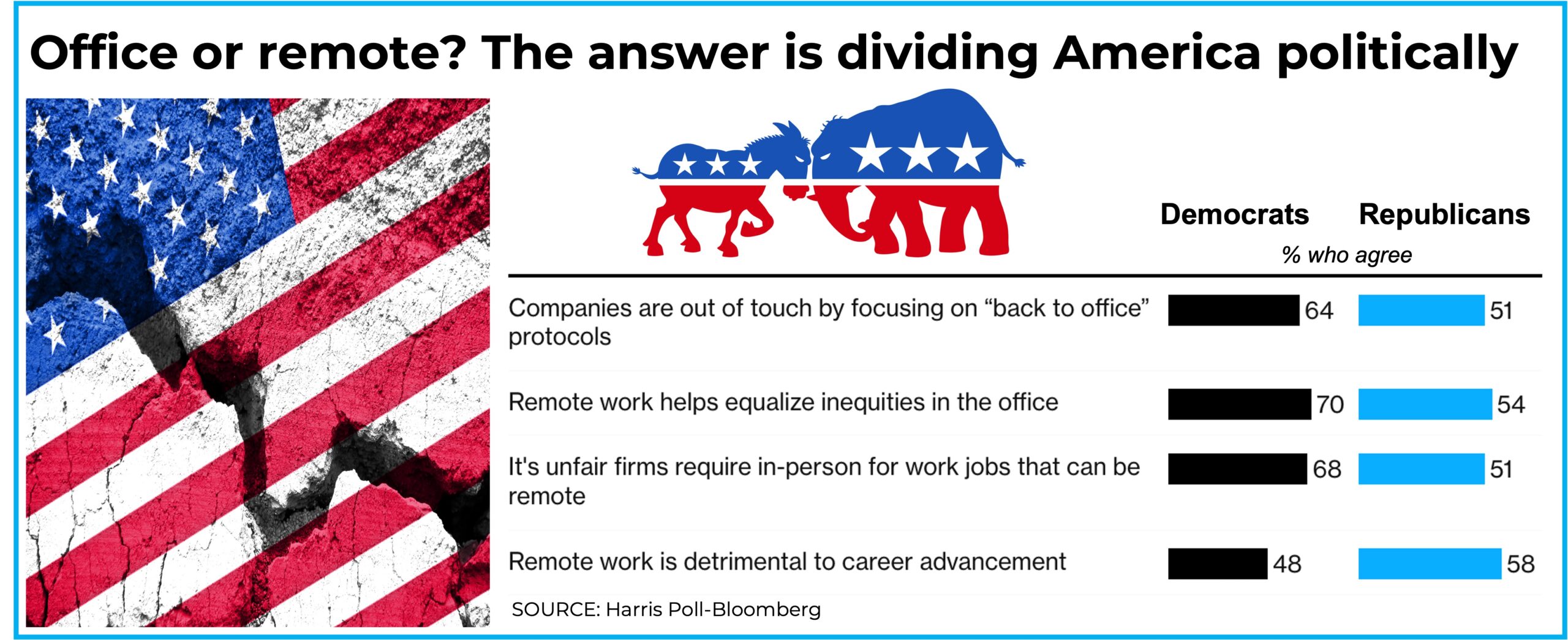
RETURN TO OFFICE IS NEXT POLITICALLY POLARIZING THEME
Where do you work from? In our Harris Poll research with Bloomberg, the answer to that question has become a cultural flashpoint.
- Democrats say remote work helps equalize office inequities (15 points higher than Republicans) and think it’s unfair when companies require in-person work for jobs that can be done remotely (14 points higher than Republicans).
- Republicans say remote work limits career advancement (10 points higher than Democrats).
- 67% of employed Americans think remote work has become unnecessarily politicized.
- 57% believe companies are out of touch for focusing so heavily on back-to-office protocols – 64% among Democrats and 51% among Republicans.
- 74% say employees need to stop complaining about returning to the office.
- DIG DEEPER: Join our next 30-minute risk-and-reputation webinar at noon ET Thursday, March 21, when we will focus more on the politicization of return to office. To join, please send an e-mail.
75% OF AMERICANS HAVE TROUBLE FINDING FACTUAL POLITICAL NEWS
While 80% of Americans believe in balanced political news, 54% admit they only consume from sources that align with their beliefs, according to our Harris Poll study with Otherweb.
- 75% report difficulty finding factual political news.
- 87% believe people are more misinformed about political news today than they were five years ago.
- A generational divide exists in news consumption: 40% of Gen Z cite social media as their primary news source – and they are the least likely group to think news-source diversity is important.
CAR DEALERS STILL HAVE A REPUTATION PROBLEM
Most Americans do not have a favorable reputation of car dealerships, according to our Harris Poll study with KPA.
- 86% are concerned about hidden fees when buying or leasing a vehicle.
- 84% say price transparency is lacking at most dealerships.
- 76% don’t trust the dealership is being honest about pricing.
- 34% feel pressured to purchase “add-ons.”
- When shopping for a vehicle, 84% say reviews are important in their choice of dealerships.
- 93% of Gen Z use reviews to make purchasing decisions – and are twice as likely to have their choice of dealership influenced by social media.
HIGH COSTS A BARRIER TO HAVING KIDS TODAY
56% of non-parents under 60 today say they don’t plan to have kids – and many say it’s due to the high costs of raising them, according to our Harris Poll survey with NerdWallet.
- 44% say they just do not want children.
- 31% say the cost of raising a kid today is too high, as is the price of child care (23%).
- Family size also is coming into question: 22% of parents of minors who do not plan to have more kids say it’s because the overall cost of raising another child is too high, jumping to 30% for Millennials.
- 34% of employed Americans have put starting a family on hold due to a lack of work-life balance.
- 48% of working parents say finding childcare “feels impossible right now.”
ICYMI
In case you missed it, check out some of the thought-leadership and happenings around Stagwell making news:
- MARK PENN: Stagwell’s Mark Penn thinks it’s a mistake for companies to wade into politics
- QUESTBRAND: March Madness Mania: 20 Brands that Over-Index with NCAA Fans
- NATIONAL RESEARCH GROUP: Are awards shows still relevant in today’s media ecosystem?
- HARRIS POLL: Older adults Prefer Human Help to Manage Health-Related Needs
Related
Articles
Augmented Reality, In the News, Marketing Frontiers
Apr 26, 2024
Legacy Brand, Meet Next-Gen Commerce: Bomb Pop Takes Roblox
Bomb Pop is the most popular ice pop that nobody…
Artificial Intelligence, In the News
Apr 25, 2024
Embracing Comfort Unapologetically with First-Ever AI-Powered La-Z-Boy ‘Decliner’
Building the first-ever AI-powered recliner for the brand that invented…
Augmented Reality
Apr 25, 2024
Playfully Navigating the Google Booth at CES
Google partnered with Left Field Labs to blend its physical…
Newsletter
Sign Up
By
Stagwell’s Risk and Reputation Unit
Welcome to the RiskRep Radar, an every-other-week newsletter from Stagwell’s Risk and Reputation Unit on what companies and business leaders need to know about the intersection of business and politics.

Acronyms Are Even More Polarizing
ESG and DEI continue to come under fire, confuse Americans and cause trouble for businesses using the terms. ESG is up 13 points in negativity, and DEI is up 11 points since December, based on Harris Poll data.
Some Americans feel negatively about DEI because they think “it prioritizes identity over merit,” according to the Harris Poll. They feel negatively about ESG because “it’s used by companies to improve their public image rather than genuine commitment to social and environmental responsibility.”
The problem with ESG and DEI is the acronym, however – not the concepts themselves.
Americans Agree with the Value behind DEI and ESG
81% of Americans agree that corporate America should reflect the diversity of the American population, and 78% agree that it should reflect racial diversity, according to a Harris Poll study with the Black Economic Alliance. Also, 79% of Americans think having more diverse leaders would allow for better outcomes in government, business and overall innovation.
The same is true for ESG: 52% say a brand’s sustainability efforts affect their purchase decisions, according to Stagwell’s National Research Group’s data. Gen Z and Millennials, in particular, believe sustainability needs to come from the top and be established by policymakers and big-company leaders.
“Equality” is 15 points less divisive than DEI. Similarly, “sustainability” is 24 points less divisive than ESG.
Case in point: BlackRock, the original champion of ESG, just announced a pivot to “transition investing.”
New News: IVF Is the Latest Divisive Acronym
In light of the Alabama Supreme Court’s decision jeopardizing IVF in the state, our latest Harris Poll data show the term “IVF” (in-vitro fertilization) is polarizing to 53% of Americans. This is despite the fact that 90% of those familiar with the concept believe people should have access to IVF to try having a baby.
Again, it’s the acronym versus the concept that is confusing and polarizing to many Americans.
March Webinar: The Politicization of Return to Work
Our next 30-minute, free risk-and-reputation webinar is at noon ET Thursday, March 21. This month, we focus on the politicization of return to work – including new data showing three in four Americans believe remote work has become unnecessarily politicized and 57% of companies are out of touch based on their policies. To RSVP, email Alexis Williams.
ICYMI: Risk and Reputation Unit in the News
Related
Articles
Augmented Reality, In the News, Marketing Frontiers
Apr 26, 2024
Legacy Brand, Meet Next-Gen Commerce: Bomb Pop Takes Roblox
Bomb Pop is the most popular ice pop that nobody…
Artificial Intelligence, In the News
Apr 25, 2024
Embracing Comfort Unapologetically with First-Ever AI-Powered La-Z-Boy ‘Decliner’
Building the first-ever AI-powered recliner for the brand that invented…
Augmented Reality
Apr 25, 2024
Playfully Navigating the Google Booth at CES
Google partnered with Left Field Labs to blend its physical…
Newsletter
Sign Up
By: Ray Day
CONTACT:
We wanted to share our latest consumer and business insights, based on research from Stagwell. Among the highlights of our weekly consumer sentiment tracking:
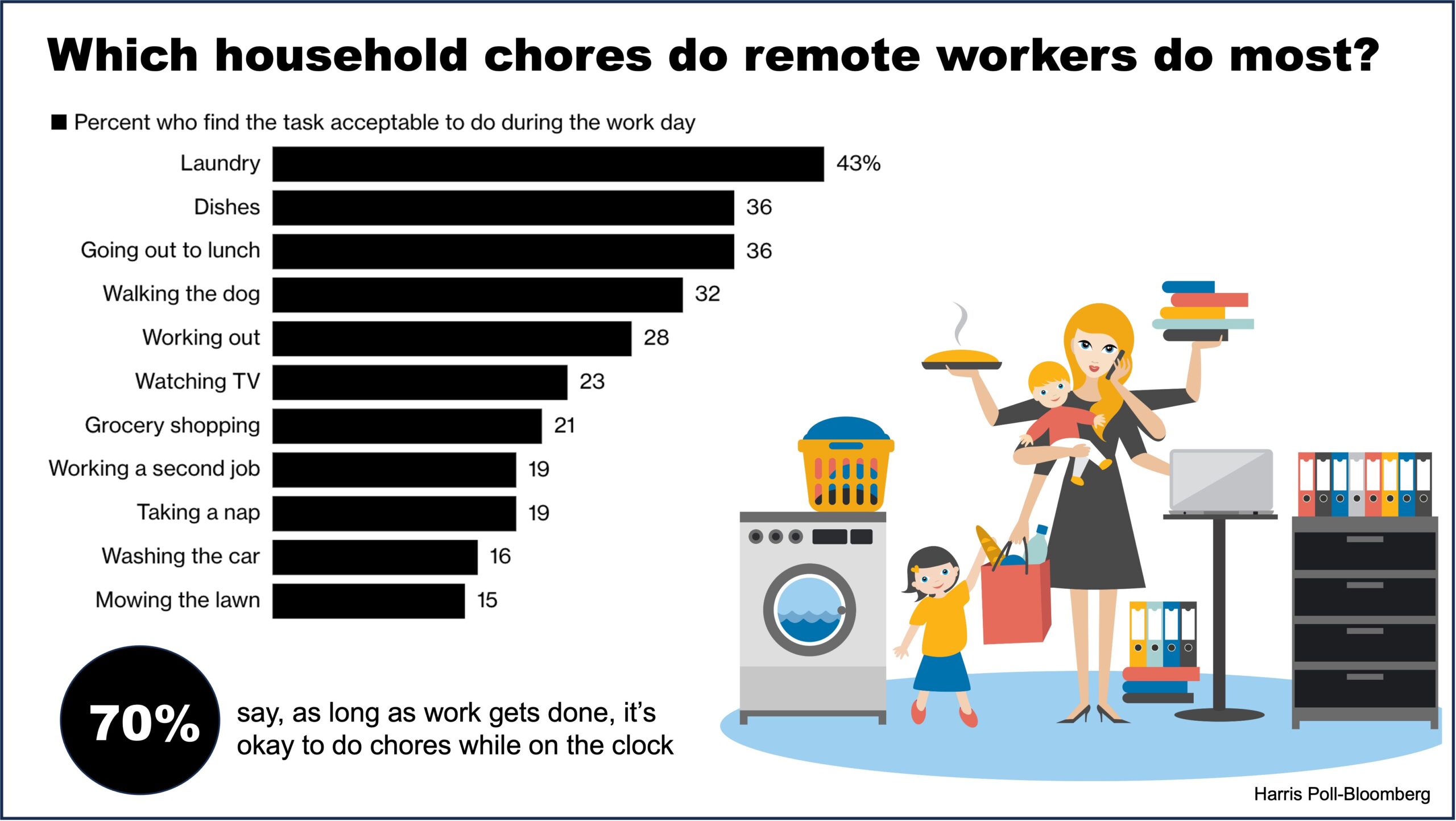
AMERICANS WORRY INFLATION IS HERE TO STAY
71% of Americans think price increases and inflation are sticky and are here to stay, according to our most recent poll with the Center for American Political Studies at Harvard University.
- 42% say inflation is the most important issue to them personally, up 4 points from January.
- 45% say their personal financial situation is worsening – an improvement from 64% who said the same in summer 2022.
- Overall, 32% of Americans say the country is on the right track (up from 30% a month ago), and 34% say the economy is on the right track (up from 31% a month ago).
- In another Harris Poll with Staffing Industry Analysts, 53% of U.S. workers say their paychecks are not keeping up with inflation.
- 66% of Gen Z and 67% of Millennials intend to request a raise this year due to inflation (compared with 51% of Gen X and 42% of Boomers).
HOMEOWNERS WISH FOR A RECESSION
Housing affordability is so difficult today that 64% of prospective home buyers are ready for a recession if it would reduce interest rates, based on our Harris Poll survey with Credit Karma.
- With mortgage rates still near 7% and home prices high, pending home sales have dropped to their lowest level in more than two decades.
- In fact, 82% say the country is grappling with an “unprecedented” housing affordability crisis.
- 61% who never have bought a home do not think they ever will be able to do so.
- Renters have been hit especially hard: 57% of renters describe their current economic situation as “poor” (compared with homeowners at 29%).
IVF IS THE LATEST ‘WEDGE WORD’
Add another acronym to the list of terms confusing and dividing Americans, based on our latest Harris Poll research.
- We have been tracking the terms that either divide or unite the country. Acronyms and labels like DEI and ESG have become like dog whistles: Americans hear them and react politically.
- IVF and fertility terms now have made the list. Among those familiar, fetal personhood (or laws that regulate pregnant women) is now the third most divisive term, with 69% saying it is more likely to divide people than unite them.
- IVF (in-vitro fertilization) also is polarizing to 53% of Americans – even though, in the same study, 90% of those familiar with the term believe people should have access to IVF to try having a baby.
- Other polarizing wedge words: underrepresented (up 8 points in negativity since December); ESG (up 13 points in negativity since December); and DEI (up 11 points in negativity since December).
- Part of the problem is a lack of understanding of the terms. Today, two thirds of Americans do not know what ESG is – yet 62% say “it’s bad.”
REMOTE WORK STUNTS CAREER ADVANCEMENT, EMPLOYEES SAY
Working from home is popular, but employees are paying the price for doing so, according to our Harris Poll survey with Bloomberg.
- 63% of employed Americans would prefer to work remotely in some capacity if it were up to them.
- Yet more than half say remote work is detrimental to career advancement.
- 50% of remote workers believe doing so hurts career progression – jumping to 57% for hybrid workers.
- 52% of hybrid workers returned to the office because of concerns about either layoffs or career advancement.
- 50% say they worry that not being in the office makes them vulnerable to job cuts and hurts chances for promotions.
ICYMI
In case you missed it, check out some of the thought-leadership and happenings around Stagwell making news:
- HARRIS POLL: 56% of Americans under age 60 who don’t have kids say they don’t plan to have them. For many, it’s because of the cost.
- STAGWELL MARKETING CLOUD: Understanding the ad tech ecosystem and how to harness its power.
- HARRIS POLL: How Many Docs Are Feeling Burned Out? Almost All of Them, Survey Finds
- HARRIS POLL: How brands can engage workout-obsessed consumers
- CODE AND THEORY: 3 ways to protect the Black community from AI
- CODE AND THEORY: ‘Rip up the Playbook Because AI is Rewriting It,’ says Code and Theory’s Head of Product Strategy
Related
Articles
Augmented Reality, In the News, Marketing Frontiers
Apr 26, 2024
Legacy Brand, Meet Next-Gen Commerce: Bomb Pop Takes Roblox
Bomb Pop is the most popular ice pop that nobody…
Artificial Intelligence, In the News
Apr 25, 2024
Embracing Comfort Unapologetically with First-Ever AI-Powered La-Z-Boy ‘Decliner’
Building the first-ever AI-powered recliner for the brand that invented…
Augmented Reality
Apr 25, 2024
Playfully Navigating the Google Booth at CES
Google partnered with Left Field Labs to blend its physical…
Newsletter
Sign Up
By: Ray Day
CONTACT:
We wanted to share our latest consumer and business insights, based on research from Stagwell. Among the highlights of our weekly consumer sentiment tracking:
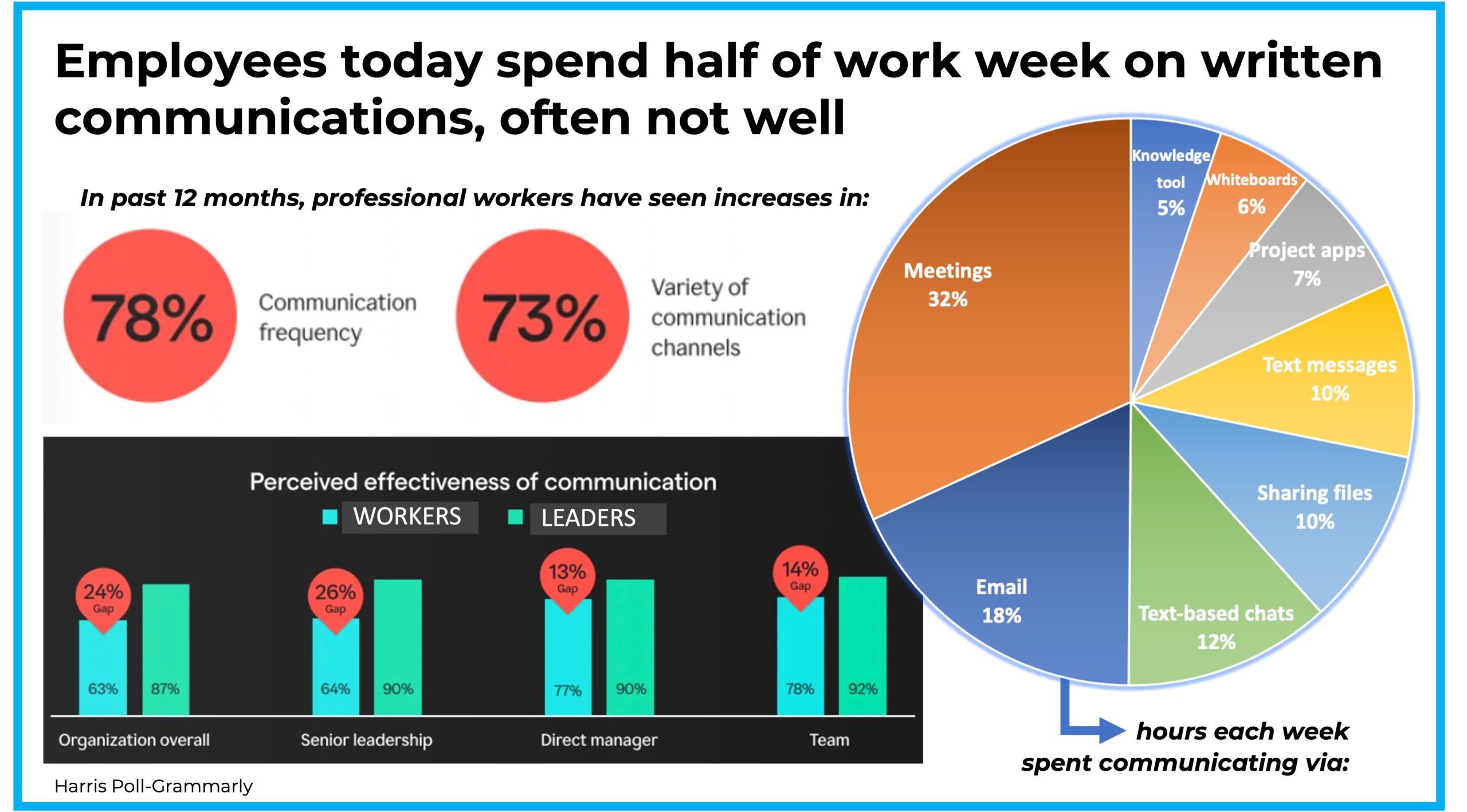
BOEING SAFETY ISSUES WORRY TRAVELERS
Boeing’s safety issues are creating nervous travelers, according to our Harris Poll research with Fast Company.
- 64% are aware of the Boeing safety issue on Alaska Airlines.
- Among those aware, 43% say they are less comfortable with flying – highest among Boomers (49%), followed by Gen X (41%), Millennials (39%) and Gen Z (37%).
- Those who plan to travel by air in the next 12 months say the safety incidents have prompted them to shift their behaviors: 47% are more likely to wear a seatbelt when not required, 30% are more likely to pick a seat in sections of the plane that they perceive as safer, and nearly half are paying more attention to safety materials.
- 40% are more likely to consider the model of the airplane they’re flying on.
- 36% are more likely to consider which airline they’re using for upcoming flights.
BUSINESSES SEE AI AS $1.6 TRILLION BOOST
Generative AI could save $1.6 trillion in U.S. business productivity each year by improving communication, based on our Harris Poll survey with Grammarly.
- Business leaders and workers are communicating more and in more channels, causing more stress than ever (16% higher stress from communication this year versus last year).
- Workers today spend nearly half of their workweek on writing tasks (19.08 hours).
- They also spend 10.5 hours in meetings, 6 hours on email and nearly 4 hours on text-based chat functions.
- Time spent reviewing and editing all these communications increased 11% from last year.
- Business communications are not hitting the mark, however: a 24% gap exists between workers’ (63%) and leaders’ (87%) perceived effectiveness of their organization’s communications.
- 64% of employees (down 8 points from last year) say their senior leadership communicates effectively.
- 90% of leaders believe they communicate effectively.
- Workers using generative AI say that it makes them better at their job (77%), has transformed how they communicate at work (71%), and they ultimately believe AI will enhance their work versus replace them (66%).
- 58% wish their companies were more open to implementing AI.
- Yet 52% admit they don’t know how to use AI.
YOUNG PEOPLE SEE MORE REWARD THAN RISK WITH AI
Gen Z is the most bullish on generative AI for school and work, based on our Harris Poll research with MITRE.
- While most U.S. adults (54%) say AI’s risks outweigh its benefits, Gen Z and Millennials are more excited about the potential benefits (57%) than risks.
- Gen Z (54%) and Millennials (58%) are most willing to use AI to perform everyday tasks (compared with Gen X at 39% and Boomers at 30%).
- Gen Z and Millennials also say using AI tools in their personal life reduces the mental load they have to carry (73%) and has given them time back to do other things (73%).
PET LOVE = INSURANCE GROWTH
America’s love for pets runs deep – with most willing to spend $1,000 or more on lifesaving medical care, and 1 in 4 now have pet insurance, based on our Harris Poll research with NerdWallet.
- 64% say they consider pets a member of their family.
- 34% budget their pet’s care costs.
- 25% would go into debt to pay for lifesaving medical care.
- 42% with pet insurance say they have it because their pets often need care covered by their policy.
- 57% of pet owners with pet insurance say they have it for “peace of mind.”
ICYMI
In case you missed it, check out some of the thought-leadership and happenings around Stagwell making news:
- Almost All U.S. Physicians Surveyed Feel Burned Out on a Regular Basis, with Many Having Considered Career Change
- How Americans keep fit, and why they fall short, reveal opportunities for marketers
- Mirroring their favorite A-list celebrities, Gen Zers don Polo Ralph Lauren
Related
Articles
Augmented Reality, In the News, Marketing Frontiers
Apr 26, 2024
Legacy Brand, Meet Next-Gen Commerce: Bomb Pop Takes Roblox
Bomb Pop is the most popular ice pop that nobody…
Artificial Intelligence, In the News
Apr 25, 2024
Embracing Comfort Unapologetically with First-Ever AI-Powered La-Z-Boy ‘Decliner’
Building the first-ever AI-powered recliner for the brand that invented…
Augmented Reality
Apr 25, 2024
Playfully Navigating the Google Booth at CES
Google partnered with Left Field Labs to blend its physical…
Newsletter
Sign Up
By: Ray Day
CONTACT:
We wanted to share our latest consumer and business insights, based on research from Stagwell. Among the highlights of our weekly consumer sentiment tracking:
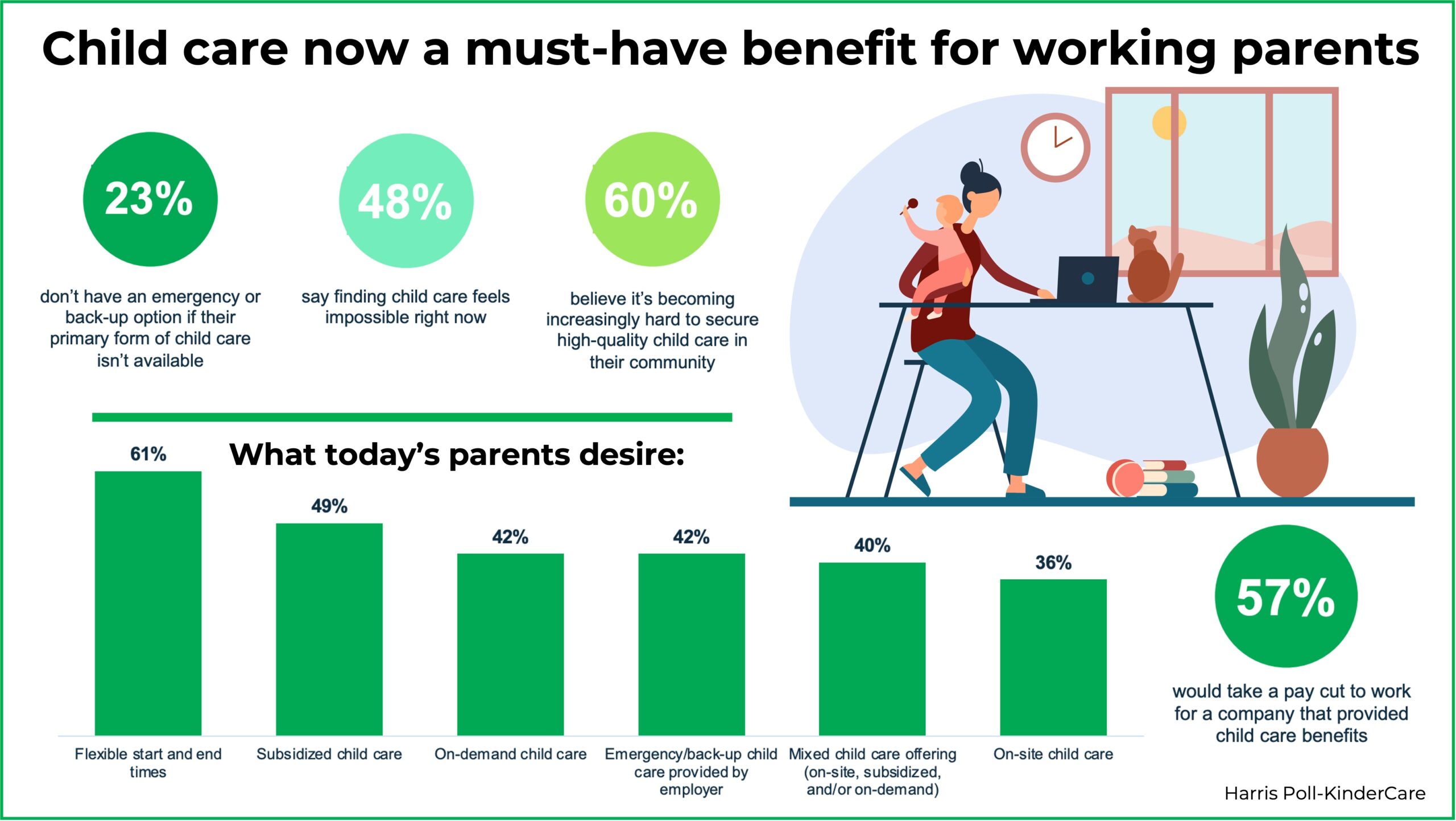
TWO THIRDS WOULD STAY AT JOB PAYING FOR CHILD CARE
Parents today would take a pay cut for child care benefits at work, according to the fifth annual Parent Confidence Index from Harris Poll and KinderCare.
- Working parents see a gap between child care benefits they need and what employers provide.
- 65% of parents would stay at their job if their employer provided subsidized child care.
- 57% would take a pay cut to work for a company that provided child care benefits.
- Only a quarter of parents say their employer offers a child care benefit.
- 70% of parents are contemplating adapting their careers to be able to care for their children.
- 73% of parents who use child care feel highly confident in themselves on a typical day. That compares with a 43% confidence rating of all parents.
LOCAL PHARMACIES ARE THE NEW DOCTOR’S OFFICES
Community pharmacies are fast becoming the primary healthcare source for Americans, according to our latest Harris Poll survey with CVS Health.
- 90% of Americans live within five miles of a retail pharmacy.
- 7 in 10 prefer pharmacies for their healthcare needs because of convenient locations with evening and weekend hours.
- 1 in 3 Americans visit their pharmacy at least once per week.
- 40% of Americans of color visit their local pharmacies in person at least a few times per month to speak with a pharmacist for heart health services (32% compared with 19% for White Americans), education on diseases (32% compared with 18%), immunizations (30% compared with 19%), diagnostic tests (30% compared with 17%) and prescribing contraception (29% compared with 15%).
- 81% of consumers say they use digital technology to interact with their pharmacy, through websites, mobile apps and text messages.
FINDING A ROOMMATE HARDER THAN FINDING A DATE
Rent prices are now 29.4% higher than before the pandemic, and young people hoping to share expenses are finding it harder to find a roommate than a romantic partner, based on our Harris Poll survey with Zillow.
- 59% of Gen Z and Millennial renters report feeling uncertain about where they would go to find a roommate if they needed one.
- 60% say finding a good roommate is more challenging than finding a romantic partner (68% for women).
- A roommate is a financial must for many: 57% of renters describe their current economic situation as “poor,” and 46% do not have money when a bill is due (versus 29% of homeowners who describe their financial situation as poor and 29% of homeowners who don’t have money to pay bills on time).
DEI, ESG AND REPUTATION
Join our new monthly 30-minute webinar from Stagwell’s Risk and Reputation Unit. Please email Alexis Williams to RSVP.
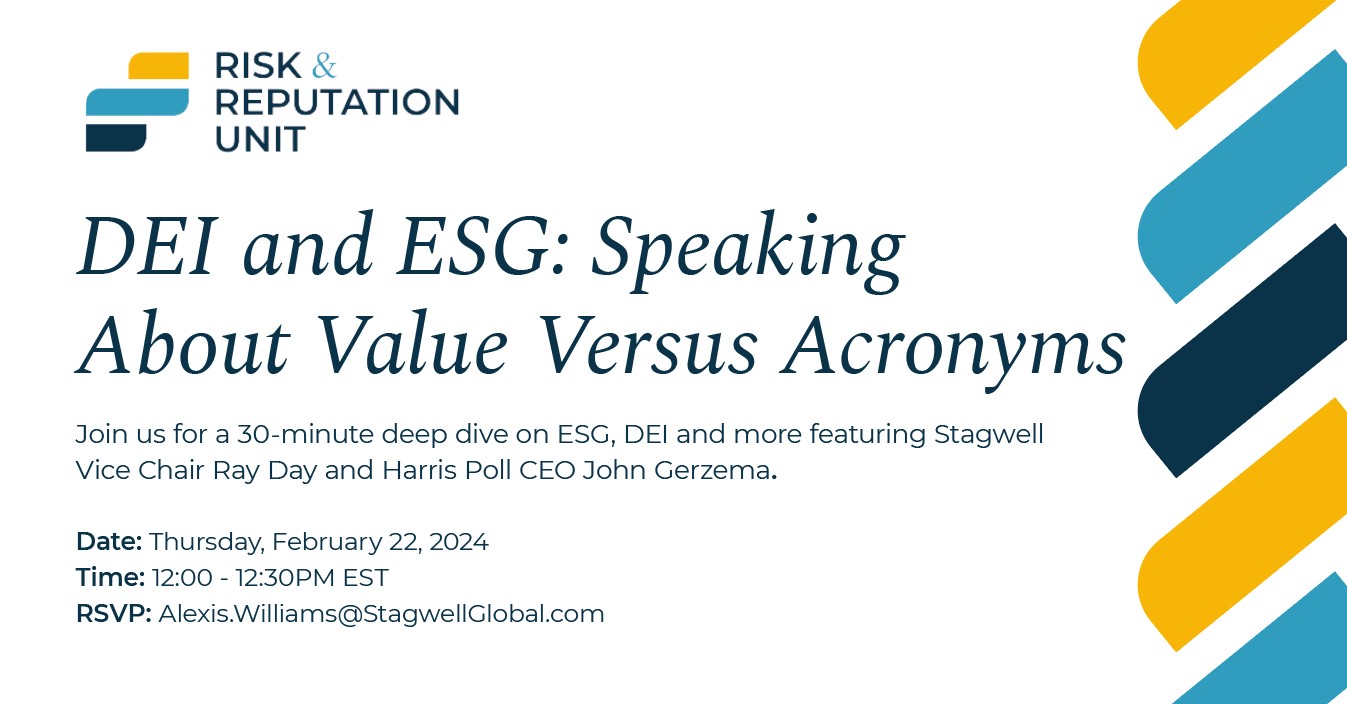
ICYMI
In case you missed it, check out some of the thought-leadership and happenings around Stagwell making news:
- HARRIS POLL: A Country (Taylor) Divided and Other Super Bowl Insights
- HARRIS POLL: Cancer prevention is a top priority for business leaders, but they’re operating without the data they need
- HARRIS POLL: They’re back! Gen Z is reviving UGG’s popularity
- CODE AND THEORY: Your AI’s Hallucinations Are Out Of Control, What To Do
- ASSEMBLY: Ramadan Strategy: Illuminating Pathways for Unforgettable Marketing Moments
Related
Articles
Augmented Reality, In the News, Marketing Frontiers
Apr 26, 2024
Legacy Brand, Meet Next-Gen Commerce: Bomb Pop Takes Roblox
Bomb Pop is the most popular ice pop that nobody…
Artificial Intelligence, In the News
Apr 25, 2024
Embracing Comfort Unapologetically with First-Ever AI-Powered La-Z-Boy ‘Decliner’
Building the first-ever AI-powered recliner for the brand that invented…
Augmented Reality
Apr 25, 2024
Playfully Navigating the Google Booth at CES
Google partnered with Left Field Labs to blend its physical…
Newsletter
Sign Up
By: Ray Day
CONTACT:
We wanted to share our latest consumer and business insights, based on research from Stagwell. Among the highlights of our weekly consumer sentiment tracking:
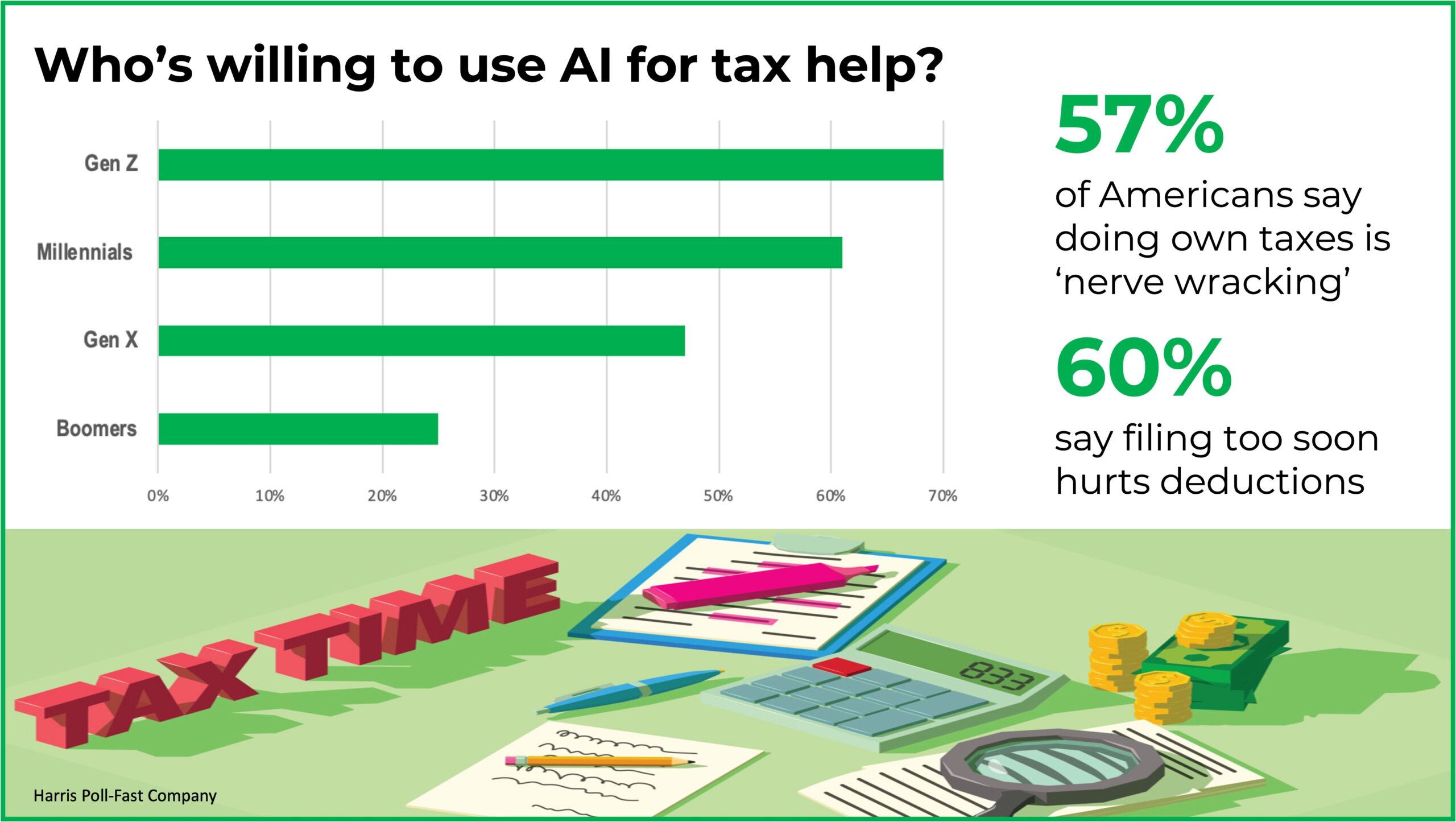
66 DAYS UNTIL ONE OF AMERICA’S MOST STRESSFUL DAYS
April 15 is on the horizon, and 57% of American adults find completing their own tax-filing nerve-wracking, according to our Harris Poll survey.
- 46% file early in the season, 33% mid-season, and 19% wait until the deadline – or after.
- 54% prefer to file with the assistance of someone else.
- Among those who receive support, 33% meet with a tax professional, 22% use an online tax service, and 15% use paid tax software.
- Maximizing tax returns is top of mind: 60% believe filing too quickly could affect their deductions.
- 66% say it’s smart for people to use legal loopholes in tax law to maximize their filing.
YOUNG PEOPLE TURNING TO AI FOR TAX HELP
Tax filing using AI is growing in popularity among America’s young adults, based on our Harris Poll research with Fast Company.
- 70% of Gen Z would consider using AI-based tax preparation software to file their taxes, compared with 45% of Americans overall (61% Millennials, 47% Gen X and 25% Boomers).
- 44% of Gen Z already has used AI to ease tax filing (versus Boomers at 4%).
- AI could help calm Gen Z’s tax nerves: 67% of Gen Z say completing tax filings is nerve-racking (compared with 57% of Americans overall).
LOUD BUDGETING BECOMING A THING
Gen Z also is introducing us to “loud budgeting,” or speaking up about saving money and not overspending, according to our Harris Poll study with Credit Karma.
- Comedian Lukas Battle introduced loud budgeting in a TikTok video viewed more than 1.5 million times.
- 27% of Americans admit to spending to cope with stress.
- 69% of Americans say they have financial regrets from 2023.
- 53% say their economic situation worsened last year.
- Many point to poor spending habits: 41% regret not saving money, and 22% overspent.
WHERE AMERICA GETS THE NEWS IT DOESN’T TRUST
Social media CEOs were in the spotlight last week during a Senate Judiciary hearing that reinforced just how low public trust is in the platforms.
- 65% of Americans do not think social media is a trusted source of news, yet 66% have used social media to seek out news, according to Harris Poll data.
- It’s not just young people: 82% of Gen Z, 78% of Millennials, 72% of Gen X and 44% of Boomers use social media as primary news sources.
- It’s not partisan either: 67% of Democrats, 66% of Republicans and 66% of Independents use social media for news.
- Read more about the trust deficit in the new edition of Stagwell’s Risk and Reputation Radar.
ICYMI
In case you missed it, check out some of the thought-leadership and happenings around Stagwell making news:
- HARRIS POLL: Would the NFL Ever Put Super Bowl On Pay-Per-View? Bad Idea
- CODE AND THEORY: What if you invested $20m in AI instead of a Super Bowl ad?
- KWT: Can Generative AI Help Employee Advocacy?
- NRG: Which games left their mark at The Game Awards?
- CODE AND THEORY: Thanks to Gen Z, Deeper Connections Will Become the Currency of the Future
- HARRIS POLL: 2 generations, 1 corner office: 20 years separate the Harris Poll’s co-CEOs
Related
Articles
Augmented Reality, In the News, Marketing Frontiers
Apr 26, 2024
Legacy Brand, Meet Next-Gen Commerce: Bomb Pop Takes Roblox
Bomb Pop is the most popular ice pop that nobody…
Artificial Intelligence, In the News
Apr 25, 2024
Embracing Comfort Unapologetically with First-Ever AI-Powered La-Z-Boy ‘Decliner’
Building the first-ever AI-powered recliner for the brand that invented…
Augmented Reality
Apr 25, 2024
Playfully Navigating the Google Booth at CES
Google partnered with Left Field Labs to blend its physical…
Newsletter
Sign Up
By
Stagwell’s Risk and Reputation Unit
Welcome to the RiskRep Radar, an every-other-week newsletter from Stagwell’s Risk and Reputation Unit leaders on what brands need to know about the intersection of business and politics. Every edition features key data and news roundups with early access to Risk and Rep Unit-led polling.

Americans Trust Local Institutions More than National Ones
American institutions, especially at the national level, are facing a huge deficit of trust. Harris Poll data show people get increasingly suspicious of those outside their own community:
- My friends/family: 84% trust information from this source
- Local TV news: 65%
- Local newspapers and news websites: 62%
- National newspapers and news websites: 55%
- National TV news: 55%
- Local political leaders: 50%
- National political leaders: 41%
- Social media: 35%
Americans of All Ages Use Social Media for News But Don’t Trust It
While 65% of Americans do not think social media is a trusted source of news, 66% have used social media to seek out news, according to the Harris Poll.
And it’s not just young people: 82% of Gen Z, 78% of Millennials, 72% of Gen X and 44% of Boomers and older have used social media for news.
Nor is it partisan: 67% of Democrats, 66% of Republicans and 66% of Independents have used social media for news.
Yet everyone isn’t seeing the same social media. What makes the situation even more challenging is that people live in their own news bubbles – and their own brand bubbles, too.
In the News: Social Media Platforms’ Trust and Safety Struggles
Social media CEOs from Meta, TikTok, X, Snap and Discord were in the hot seat last week for a contentious Senate Judiciary hearing about online child safety. The CEOs tried to highlight the resources their companies are directing towards monitoring and prevention, but public trust remains low.
While backlash against tech companies for their struggles on child safety comes from both sides of the aisle, the criticism around tech companies’ content moderation policies is increasingly partisan. Meta is now the poster child for what we call the “Crisis L,” a new risk pattern in which a politically driven crisis causes major reputation damage to a company with no evidence of recovery.
In 2019, after the Cambridge Analytica scandal, Meta’s reputation score dropped from the mid-70s to 58.3, into the Poor tier, and it still sits at 59.7 as of 2023. Meta is now the seventh most polarized company on the Axios Harris 100 with a 12.7-point gap between Democrat and Republican scores.
Brands cannot expect reputation recovery when half the country feels alienated from them politically.
Mark Your Calendar: February Risk & Rep Webinar
In addition to our biweekly newsletters, stay tuned for our monthly webinar series: 30-minute deep dives for communication leaders into key topics from employee activists to misinformation to geopolitics.
To RSVP to our first webinar on Thursday, February 22, 12:00-12:30 pm EST, email Alexis Williams.
ICYMI: Risk and Reputation Unit in the News
Related
Articles
Augmented Reality, In the News, Marketing Frontiers
Apr 26, 2024
Legacy Brand, Meet Next-Gen Commerce: Bomb Pop Takes Roblox
Bomb Pop is the most popular ice pop that nobody…
Artificial Intelligence, In the News
Apr 25, 2024
Embracing Comfort Unapologetically with First-Ever AI-Powered La-Z-Boy ‘Decliner’
Building the first-ever AI-powered recliner for the brand that invented…
Augmented Reality
Apr 25, 2024
Playfully Navigating the Google Booth at CES
Google partnered with Left Field Labs to blend its physical…
Newsletter
Sign Up
By: Ray Day
CONTACT:
We wanted to share our latest consumer and business insights, based on research from Stagwell. Among the highlights of our weekly consumer sentiment tracking:
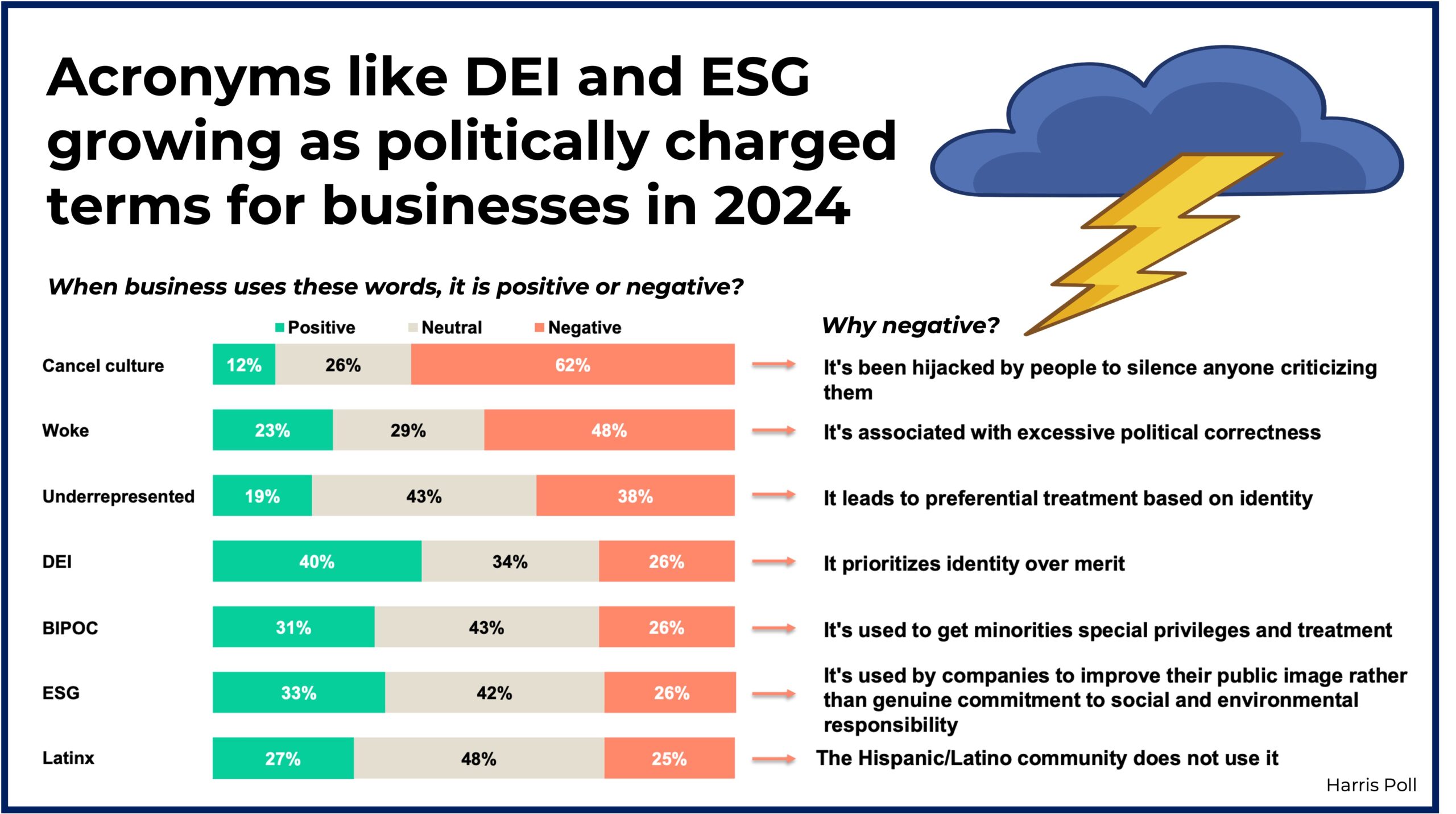
VIRTUAL COLLEGE HURTING NEW HIRES’ JOB SUCCESS
Virtual college courses and internships instead of in-person training are giving Gen Z more challenges in the workplace than their predecessors, according to our Harris Poll survey.
- 82% of corporate managers say new Gen Z hires often lack the soft skills to be successful.
- 78% of younger employees agree – adding that abstract workplace soft skills can’t be taught and can only be gained by being with more seasoned employees over time.
- 55% of Gen Z employees say their lack of adequate interpersonal training makes them afraid of asking “dumb questions” in the workplace.
- 59% don’t know whom to turn to for help with their soft skills.
- More than two thirds of Gen Z employees say that those who socially connect with senior coworkers are more likely to be promoted.
HEALTHCARE HAS BECOME TOO HARD, PATIENTS SAY
Healthcare has become too hard, and young people in particular are not seeking the help they need, according to Harris Poll’s new global Future of Health Survey with ZS.
- Three quarters of people in every country except Japan say they put off healthcare because accessing it is so frustrating.
- Other than in Sweden, the percentage of people in every country who say “I feel like the healthcare system doesn’t care about people like me” increased between 2022 and 2023.
- U.S. consumers trust retailers like CVS and Walmart (66%) to act in their best interests more than health insurance companies (54%) and pharmaceutical companies (51%).
- A growing gap exists between healthcare providers and patient satisfaction – especially cardiology. In fact, 1% of U.S. cardiologists believe their patients are frustrated after an interaction. The reality is 22% of patients walk away frustrated.
- Similarly, 64% of oncologists think patients feel cared for after a visit, while 46% of cancer patients say they actually are satisfied.
- The solution? 76% of people in the U.S., UK, Sweden, Germany and Japan believe their governments should shift funding toward preventing diseases to reduce health disparities. The number jumps to 84% in the U.S.

ACRONYMS CAN BE BAD FOR BUSINESS
Acronyms like DEI and ESG are increasingly becoming reputation issues for businesses, as many Americans hear them as politically polarizing terms. The Harris Poll last weekend asked if Americans have a positive, negative or neutral feeling when businesses use the following terms:
- Cancel culture is the term today that divides the most – perceived as a negative by 62%, neutral by 26% and positive by 12%.
- Woke is equally problematic – 48% negative, 29% neutral and 23% positive.
- DEI (26% negative), ESG (26% negative) and Latinx (25% negative) also are divisive words for businesses.
- Context matters: While many Americans find the acronym ESG to be a negative, far fewer say the same about sustainability. Similarly, swapping DEI for equality improves understanding and acceptance substantially.
- To help businesses navigate communicating in today’s unprecedented era of political polarization, Stagwell’s Risk and Reputation Unit is conducting off-the-record briefings for C-suite executives seeking data and insights. To join one of the forums, send us an e-mail.
ICYMI
In case you missed it, check out some of the thought-leadership and happenings around Stagwell making news:
- Ugg scores with young buyers and Swift lifts the NFL, while Bud Light gets a glimmer of good news in latest Ad Age-Harris Poll Gen Z tracker
- Travis Kelce Voted the Football Star Americans Would Most Want as Their Neighbor
- Why are so many more young people living with their parents? Gen Z on their struggle to move out
- What is code-switching? Why Black Americans say they can’t be themselves at work
- Harris Poll: Wide divide in health care providers explains a lot about sickness and health in Chicago
Related
Articles
Augmented Reality, In the News, Marketing Frontiers
Apr 26, 2024
Legacy Brand, Meet Next-Gen Commerce: Bomb Pop Takes Roblox
Bomb Pop is the most popular ice pop that nobody…
Artificial Intelligence, In the News
Apr 25, 2024
Embracing Comfort Unapologetically with First-Ever AI-Powered La-Z-Boy ‘Decliner’
Building the first-ever AI-powered recliner for the brand that invented…
Augmented Reality
Apr 25, 2024
Playfully Navigating the Google Booth at CES
Google partnered with Left Field Labs to blend its physical…
Newsletter
Sign Up
By: Ray Day
CONTACT:
We wanted to share our latest consumer and business insights, based on research from Stagwell. Among the highlights of our weekly consumer sentiment tracking:

IMMIGRATION OVERTAKES INFLATION AS AMERICANS’ TOP CONCERN
Immigration has overtaken inflation as the top concern among Americans, according to our most recent poll with the Center for American Political Studies at Harvard University.
- 35% list immigration as their top concern among an array of issues, with inflation a close second (32%).
- Inflation, however, remains the issue affecting Americans personally. In fact, 38% say inflation affects them directly, compared with 17% who cite immigration as affecting them personally.
- Republicans (85%) and independents (71%) want to see tougher border enforcement, while Democrats are split 50-50.
- Overall, 30% of Americans say the country is on the right track (down from 32% a month ago), and 31% say the economy is on the right track (down from 33% a month ago).
HEART DISEASE MISDIAGNOSED BY CONSUMERS
More than half of U.S. adults don’t know that heart disease is the leading cause of death, despite its 100-year reign, based on our Harris Poll survey with the American Heart Association.
- 51% did not correctly identify heart disease as the leading cause of death in the U.S., while 16% said they didn’t know the leading cause.
- 18% list cancer as the top cause of death of people in the U.S.
- 46.7% of U.S. adults have high blood pressure, yet only 38% of those with high blood pressure are unaware that they have it.
- In the past 10 years, the age-adjusted death rate from high blood pressure jumped 65.6%, and the actual number of deaths rose 91.2%.
SPORTS FANS WILLING TO SPEND FOR STREAMING
Sports fans are increasingly willing to spend for watching their favorite games, according to our Harris Poll survey with Front Office Sports.
- 61% of NFL fans and 45% of all U.S. adults say they would be likely to pay for a subscription to a streaming service to watch an NFL playoff game.
- If the NFL were to make a postseason matchup a pay-per-view event, 57% of NFL fans and 42% of U.S. adults surveyed say they would likely pay a one-time fee to watch.
- Among NFL fans willing to pay a per-game price, 53% would pay $10 or more, and 17% would pay $20 or more.
- 64% of NFL fans and 49% of all U.S. adults would pay for a subscription to watch the Super Bowl.
ANIMALS ARE IN, CRYING IS OUT AT THIS YEAR’S SUPER BOWL
When it comes to Super Bowl ads, laughing and animals are in, and crying and cause-related marketing are out, according to our Harris Poll survey with AdAge.
- 69% of respondents favor funny ads, while only 14% want serious ones.
- Only 31% want to see patriotic themes and 24% purpose-driven ads.
- Animals remain a crowd favorite with nearly half of Americans.
- 42% want to see athletes, followed by TV and movie characters (42%) and celebrities (41%).
- Ads aside, 76% are excited to see the actual game, with Gen Xers particularly interested (81%).
- Gen X (72%) is most excited to watch the ads, compared with 64% of the general population.
ICYMI
In case you missed it, check out some of the thought-leadership and happenings around Stagwell making news:
- The State of AI + Women, as presented at 2024 WEF in Davos
- What the 21st century space race could mean for popular culture
- Managers’ latest complaints about Gen Z: They lack soft skills and have unrealistic workplace expectations
- Workers of all generations agree on one thing: They have no idea what the right rules at work are anymore
Related
Articles
Augmented Reality, In the News, Marketing Frontiers
Apr 26, 2024
Legacy Brand, Meet Next-Gen Commerce: Bomb Pop Takes Roblox
Bomb Pop is the most popular ice pop that nobody…
Artificial Intelligence, In the News
Apr 25, 2024
Embracing Comfort Unapologetically with First-Ever AI-Powered La-Z-Boy ‘Decliner’
Building the first-ever AI-powered recliner for the brand that invented…
Augmented Reality
Apr 25, 2024
Playfully Navigating the Google Booth at CES
Google partnered with Left Field Labs to blend its physical…
Newsletter
Sign Up
By
Stagwell’s Risk and Reputation Unit
Welcome to the RiskRep Radar, a biweekly newsletter from Stagwell’s Risk and Reputation Unit leaders on what brands need to know at the intersection of business and politics. Every edition will feature key data and news roundups with early access to Risk and Rep Unit-led polling when available.

Live from CES: When Should Brands Speak Out?
The pendulum has swung back around. Five years ago, brands were encouraged to speak out a lot, but now C-suites are asking whether they should retrench and stay out of politics.
Ray Day and John Gerzema from the Risk and Reputation Unit were at CES 2024 talking to CCOs about how companies should navigate the political cycle, stick to their values and avoid dividing their audience. Watch their Content Studio interview for their advice.
Toxic Words and Acronyms
Words matter and today acronyms are the main troublemakers. That’s according to the Harris Poll’s first-of-its-kind assessment of the most commonly used words in business and not what they mean, but how they’re interpreted. Highlights from the results, which were featured in Axios Communicators:
- 49% of Americans find “ESG” a divisive term
- 38% find “DEI” divisive
- ESG is nearly twice as polarizing a term as “sustainability”
- The top three most divisive terms were “cancel culture” (78%), “woke” (66%) and “underrepresented” (62%)
The key takeaway: Businesses should remain committed to diversity efforts, which other Harris Poll data shows commands overwhelming support – but avoid the acronyms, which have become overly politicized.
Reputation Case Study: Boeing’s Latest Mishap
Stagwell CEO Mark Penn’s Harvard Business Review piece last month dove into the increasing severity of corporate crises that are centered on politics rather than competence or governance issues. That article featured Boeing as a company that successfully navigated the Crisis U: its reputation took a hit after multiple 737 Max crashes, but it recovered within 2-3 years by proving its core competency. Now after the terrifying 737 Max 9 incident earlier this month, Boeing will have to win back people’s trust all over again.
Mark Your Calendar: February Risk & Rep Webinar
The Risk and Reputation Unit will be releasing a steady stream of content throughout 2024 to prepare brands for the contentious election cycle. In addition to our biweekly newsletters, stay tuned for our monthly webinar series: 30-minute deep dives for communication leaders into key topics from employee activists to misinformation to geopolitics.
To RSVP to our first webinar on Thursday, February 22, 12:00-12:30 pm EST, email Alexis Williams.
ICYMI: Risk and Reputation Unit in the News
Related
Articles
Augmented Reality, In the News, Marketing Frontiers
Apr 26, 2024
Legacy Brand, Meet Next-Gen Commerce: Bomb Pop Takes Roblox
Bomb Pop is the most popular ice pop that nobody…
Artificial Intelligence, In the News
Apr 25, 2024
Embracing Comfort Unapologetically with First-Ever AI-Powered La-Z-Boy ‘Decliner’
Building the first-ever AI-powered recliner for the brand that invented…
Augmented Reality
Apr 25, 2024
Playfully Navigating the Google Booth at CES
Google partnered with Left Field Labs to blend its physical…

